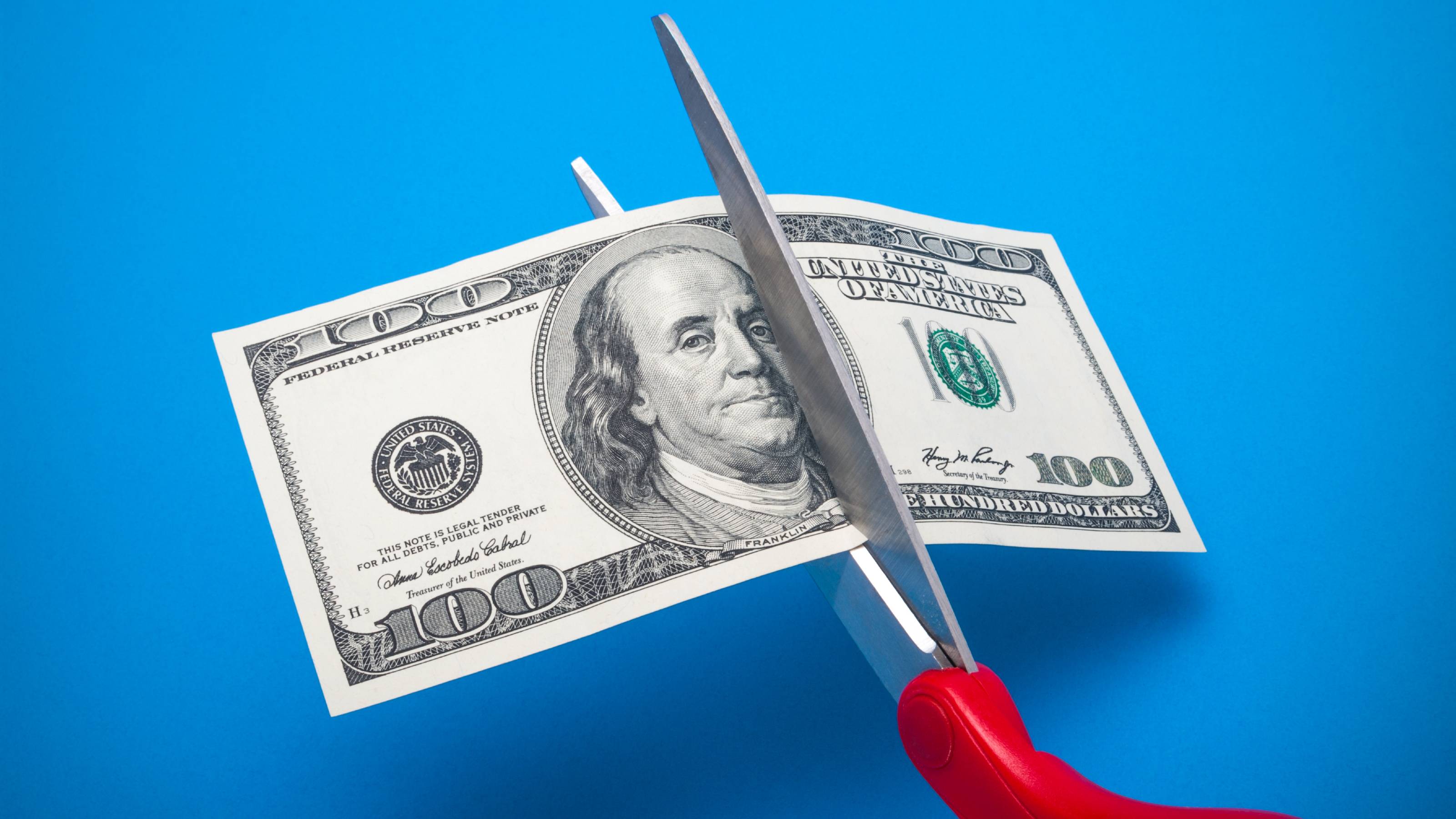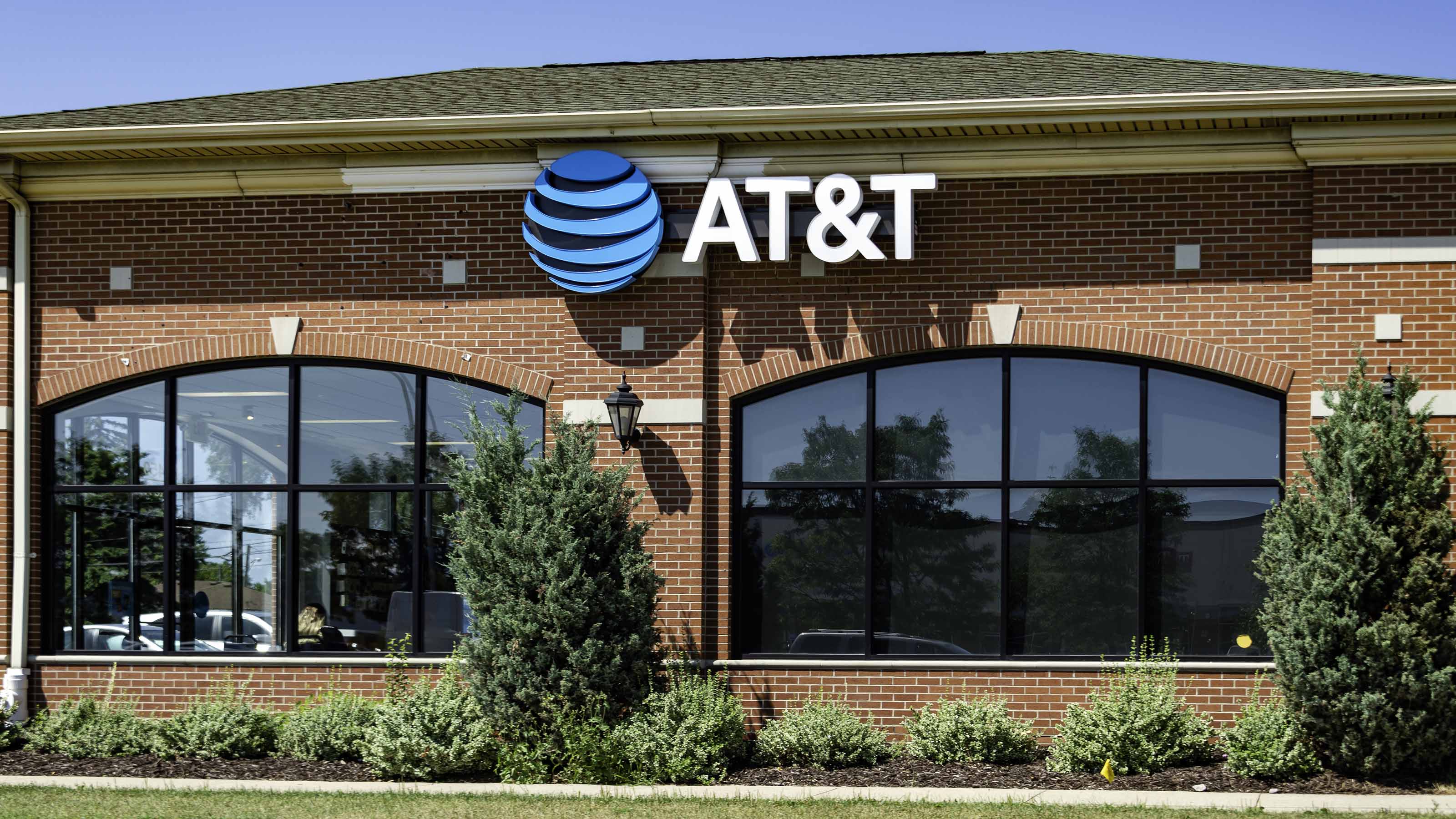Dividend Cuts and Suspensions: Who's Paring Back?
The COVID-caused flood of dividend cuts and suspensions has slowed to a trickle, but some notable names have still slashed payouts of late.

Profit and prosper with the best of Kiplinger's advice on investing, taxes, retirement, personal finance and much more. Delivered daily. Enter your email in the box and click Sign Me Up.
You are now subscribed
Your newsletter sign-up was successful
Want to add more newsletters?

Delivered daily
Kiplinger Today
Profit and prosper with the best of Kiplinger's advice on investing, taxes, retirement, personal finance and much more delivered daily. Smart money moves start here.

Sent five days a week
Kiplinger A Step Ahead
Get practical help to make better financial decisions in your everyday life, from spending to savings on top deals.

Delivered daily
Kiplinger Closing Bell
Get today's biggest financial and investing headlines delivered to your inbox every day the U.S. stock market is open.

Sent twice a week
Kiplinger Adviser Intel
Financial pros across the country share best practices and fresh tactics to preserve and grow your wealth.

Delivered weekly
Kiplinger Tax Tips
Trim your federal and state tax bills with practical tax-planning and tax-cutting strategies.

Sent twice a week
Kiplinger Retirement Tips
Your twice-a-week guide to planning and enjoying a financially secure and richly rewarding retirement

Sent bimonthly.
Kiplinger Adviser Angle
Insights for advisers, wealth managers and other financial professionals.

Sent twice a week
Kiplinger Investing Weekly
Your twice-a-week roundup of promising stocks, funds, companies and industries you should consider, ones you should avoid, and why.

Sent weekly for six weeks
Kiplinger Invest for Retirement
Your step-by-step six-part series on how to invest for retirement, from devising a successful strategy to exactly which investments to choose.
Income investors may be forgiven if they're still shell shocked a year after they suffered a tsunami of dividend cuts, suspensions and cancellations the likes of which the market has rarely seen.
In 2020, investors could hardly keep up with the daily drumbeat of bad dividend news. Even immense blue-chips like Walt Disney (DIS), a stalwart dividend payer and component of the Dow Jones Industrial Average, were turning off the spigots that return cash to shareholders. Heck, Disney's dividend remains suspended to this day.
Happily, the flood of dividend cuts and cancellations we saw last year has slowed to barely a trickle in 2021. But that doesn't mean the wider stock market has been totally kind to income investors' wallets. A look beyond the S&P 500 reveals that we're not completely safe from bad news as far as dividend cuts are concerned.
Perhaps just as important, although some companies have since reinstated their dividends after suspending them for a time, the reinstated payouts are far less than what income investors had come to expect.
To get a sense of where income investors remain at peril, we screened the Russell 3000 for key recent dividend cuts, suspensions and cancellations. Have a look at the three most notable dividend decreases of the past three months.
Share prices and other data are as of June 30, unless otherwise noted. Dividend yields are calculated by annualizing the most recent payment and dividing by the share price.

AT&T
- Market value: $205.5 billion
- Action: Dividend decrease
- Annual dividend prior to change: $2.08 per share*
Big changes are coming to AT&T (T, $28.78) in 2022.
On May 17, the telecom giant announced that it was spinning off WarnerMedia – which it acquired in June 2018 for $85 billion – and merging it with Discovery Communications (DISCA), the company behind cable networks such as HGTV, Animal Planet, and the Food Network.
Together with HBO, CNN, TBS, the Warner Bros. movie studio and other media properties, the combined entity will have the scale necessary to compete with Netflix (NFLX), Disney (DIS) and the rest of the entertainment industry's behemoths.
AT&T will receive $43 billion in cash, debt securities and the assumption of some of WarnerMedia's debt by Warner Bros. Discovery, the new name of the combined entity. AT&T and its shareholders will own 71% of Warner Bros. Discovery.
However, dividend investors won't be getting the same payout they've become accustomed to once the combination is completed in mid-2022.
According to AT&T CFO Pascal Desroches' June 15 update to shareholders, the company will pay out between $8 billion to $9 billion annually for dividends. That's approximately 40-43% of the $20 billion or more in free cash flow it expects to generate once WarnerMedia's been spun off.
In the first quarter ended March 31, AT&T paid out $3.83 billion in dividends. That's $15.32 billion on an annualized basis. Based on the midpoint of the company's dividend payout guidance post-closing, AT&T will reduce its dividend by 45% to an estimated $1.19 per share.
The cut won't take place until the transaction is completed. The good news is that it plans to invest the savings in 5G and its fiber network, increasing its annual capital investment to $24 billion.
Analysts are mixed about the move.
"Everybody recognizes that [AT&T] is a lumbering old giant with slower growth prospects and a lot of debt. So, I think they've done this transaction in an attempt to change the perception of the company to something with some more growth characteristics," Baskin Wealth Management president David Baskin told the Cantech Letter in early June.
* The cut has not occurred yet. This is based on an AT&T projection.

Antero Midstream
- Market value: $5.0 billion
- Action: Dividend decrease
- Annual dividend prior to change: $1.23 per share
Antero Midstream (AM, $10.39) gave investors a jolt in mid-February when it slashed its dividend 27% in order to allocate more capital to infrastructure investments.
The operator of pipelines and storage facilities for natural gas, liquid natural gas, and water handling and treatment, slashed its annual payout to 90 cents a share from $1.23 a share.
The move allows AM to boost capital expenditures by about $65 million, notes Raymond James analyst J.R. Weston, who rates the stock at Market Perform (the equivalent of Hold).
"While we've previously cautioned of the AM financial model attempting to 'thread the needle,' and the stock has persistently traded with a double digit dividend yield, we still expect the dividend cut will surprise some investors," Weston said in a note to clients.
UBS analyst Shneur Gershuni, who rates the stock at Neutral (Hold), largely agrees with Weston's take on events.
"While AM's headline dividend cut supports future near term volume growth, lowers leverage and creates a fresh cash flow entity, the optics of cutting to raise capex was not well received by investors," Gershuni writes.
Shares in Antero Midstream plunged more than 12% after the Feb. 18 disclosure, which is typical after stocks announce dividend cuts. However, it managed to reclaim the lost ground in a matter of weeks. And even after a bout of recent weakness, AM is up more than 35% for the year-to-date through the end of June, beating the S&P 500 by more than 20 percentage points.
At 90 cents per share annually, AM's dividend yield based on the June 30 closing stock price comes to 8.7%.
Analysts' consensus recommendation on AM stock stands at Hold, according to data from S&P Global Market Intelligence. Their average annual earnings growth forecast stands at 3% over the next three to five years.

Healthpeak Properties
- Market value: $17.9 billion
- Action: Dividend decrease
- Annual dividend prior to change: $1.48 per share
Healthpeak Properties (PEAK, $33.29), a real estate investment trust (REIT) that invests in life sciences, medical offices and senior housing properties, cut its dividend in February by 19%.
The most recent quarterly dividend of 30 cents per share – down from a previous payout of 37 cents a share – will result in annual dividend savings of about $150 million. At a projected $1.20 a share annually, PEAK's dividend yield comes to 3.6% as of the end of June.
Analysts applaud the REIT's efforts to transform its portfolio by selling its more than $4 billion senior housing portfolio, but note that the asset sales are also a drag on near-term earnings.
Indeed, by one measure, PEAK would appear to have ample resources backing its dividend. After all, the company spent a total of $787.1 million on dividends in 2020 – up from $720.1 million the previous year – and still had $1.6 billion in free cash flow after paying interest on debt.
However, net income in 2020 came to just $413.6 million. When the bottom line has to catch up to the dividend amid a costly repositioning of the business, PEAK's financial prudence is understandable.
Besides, analysts say that reducing exposure to senior housing facilities is a critical strategic move.
"In the wake of the sharp increase in COVID cases in late 2020 into January 2021, we lower our outlook for senior housing given weaker occupancy trends and higher operating expenses," says Mizuho Securities analyst Omotayo Okusanya, who rates PEAL at Neutral (Hold). "Transforming its portfolio to majority life sciences and medical office buildings could result in positive re-rating from the investor community."
Analysts' average recommendation on PEAK comes to Buy. They forecast the company to deliver average annual earnings growth of 3.9% over the next three to five years, according to S&P Global Market Intelligence.

National CineMedia
- Market value: $409.8 million
- Action: Dividend decrease
- Annual dividend prior to change: 24 cents per share
National CineMedia (NCMI, $5.07) isn't a movie chain, but it has been hammered by the pandemic in just the same way. The company displays advertising to movie-goers throughout the U.S., and with cinema attendance only just starting to trickle back after a long pandemic drought, revenue has been hurting.
NCMI reduced its quarterly payout to 5 cents a share from 7 cents a share as part of its fourth-quarter earnings release in early March, but analysts say investors shouldn't be alarmed by the move.
Wedbush's Michael Pachter, who rates NCMI at Neutral, says payout reduction was "out of an abundance of caution," as the company has more than enough cash available for dividends, income tax payments, and other fees.
Furthermore, the analyst is cautiously optimistic about the course of its business as theater chains gradually normalize operations.
"We think NCM will be well-positioned within the ad delivery ecosystem once attendance rebounds, but currently low theatrical attendance severely limits NCM’s ability to sell impressions even as advertisers are ready," writes Pachter in a note to clients. "As theatres reopen and the release slate schedule becomes more clear, we view NCM's position as increasingly positive."
At 5 cents a share per quarter, or 20 cents per share annually, the yield on NCMI's dividend came to 3.9% as of the end of June. Analysts' consensus recommendation stands at Hold, according to S&P Global Market Intelligence.
Profit and prosper with the best of Kiplinger's advice on investing, taxes, retirement, personal finance and much more. Delivered daily. Enter your email in the box and click Sign Me Up.

Dan Burrows is Kiplinger's senior investing writer, having joined the publication full time in 2016.
A long-time financial journalist, Dan is a veteran of MarketWatch, CBS MoneyWatch, SmartMoney, InvestorPlace, DailyFinance and other tier 1 national publications. He has written for The Wall Street Journal, Bloomberg and Consumer Reports and his stories have appeared in the New York Daily News, the San Jose Mercury News and Investor's Business Daily, among many other outlets. As a senior writer at AOL's DailyFinance, Dan reported market news from the floor of the New York Stock Exchange.
Once upon a time – before his days as a financial reporter and assistant financial editor at legendary fashion trade paper Women's Wear Daily – Dan worked for Spy magazine, scribbled away at Time Inc. and contributed to Maxim magazine back when lad mags were a thing. He's also written for Esquire magazine's Dubious Achievements Awards.
In his current role at Kiplinger, Dan writes about markets and macroeconomics.
Dan holds a bachelor's degree from Oberlin College and a master's degree from Columbia University.
Disclosure: Dan does not trade individual stocks or securities. He is eternally long the U.S equity market, primarily through tax-advantaged accounts.
-
 Nasdaq Leads a Rocky Risk-On Rally: Stock Market Today
Nasdaq Leads a Rocky Risk-On Rally: Stock Market TodayAnother worrying bout of late-session weakness couldn't take down the main equity indexes on Wednesday.
-
 Quiz: Do You Know How to Avoid the "Medigap Trap?"
Quiz: Do You Know How to Avoid the "Medigap Trap?"Quiz Test your basic knowledge of the "Medigap Trap" in our quick quiz.
-
 5 Top Tax-Efficient Mutual Funds for Smarter Investing
5 Top Tax-Efficient Mutual Funds for Smarter InvestingMutual funds are many things, but "tax-friendly" usually isn't one of them. These are the exceptions.
-
 Nasdaq Leads a Rocky Risk-On Rally: Stock Market Today
Nasdaq Leads a Rocky Risk-On Rally: Stock Market TodayAnother worrying bout of late-session weakness couldn't take down the main equity indexes on Wednesday.
-
 Stocks Make More Big Up and Down Moves: Stock Market Today
Stocks Make More Big Up and Down Moves: Stock Market TodayThe impact of revolutionary technology has replaced world-changing trade policy as the major variable for markets, with mixed results for sectors and stocks.
-
 Small Caps Step Up, Tech Is Still a Drag: Stock Market Today
Small Caps Step Up, Tech Is Still a Drag: Stock Market TodayEarly strength gave way to AI skepticism again as a volatile trading week ended on another mixed note.
-
 AI Unwind Takes 2% Off the Nasdaq: Stock Market Today
AI Unwind Takes 2% Off the Nasdaq: Stock Market TodayMarkets are paying more and more attention to hyperscalers' plans to spend more and more money on artificial intelligence.
-
 Strong Jobs Report Leaves Markets Flat: Stock Market Today
Strong Jobs Report Leaves Markets Flat: Stock Market TodayInvestors, traders and speculators are taking time to weigh the latest labor market data against their hopes for lower interest rates.
-
 Dow Hits New High Ahead of January Jobs Report: Stock Market Today
Dow Hits New High Ahead of January Jobs Report: Stock Market TodayA weak reading on December retail sales was in focus ahead of Wednesday's delayed labor market data.
-
 Tech Stocks Fuel Strong Start to the Week: Stock Market Today
Tech Stocks Fuel Strong Start to the Week: Stock Market TodayThe blue-chip Dow Jones Industrial Average extended its run above 50,000 on Monday and there are plenty of catalysts to keep the 30-stock index climbing.
-
 Dow Adds 1,206 Points to Top 50,000: Stock Market Today
Dow Adds 1,206 Points to Top 50,000: Stock Market TodayThe S&P 500 and Nasdaq also had strong finishes to a volatile week, with beaten-down tech stocks outperforming.


